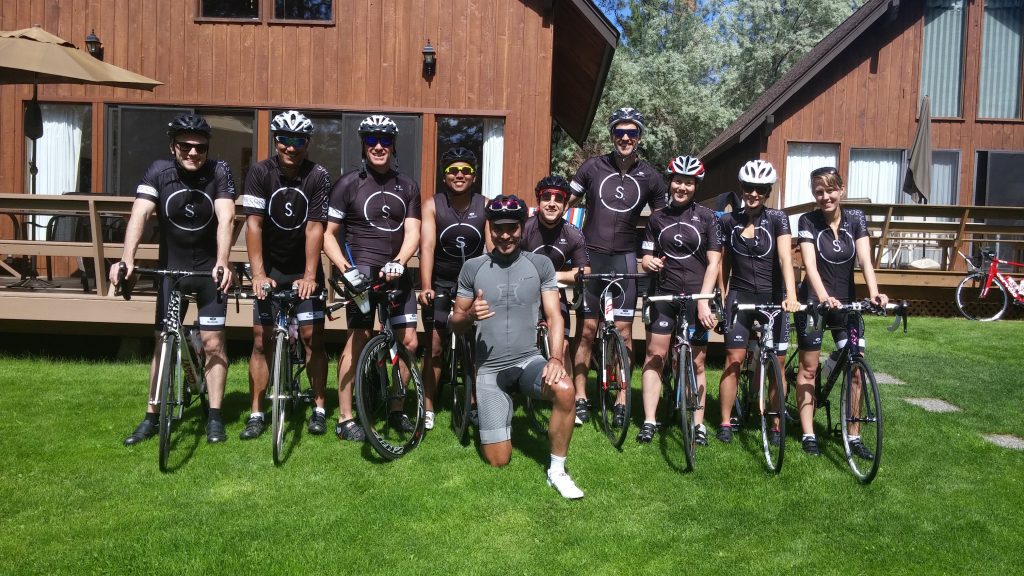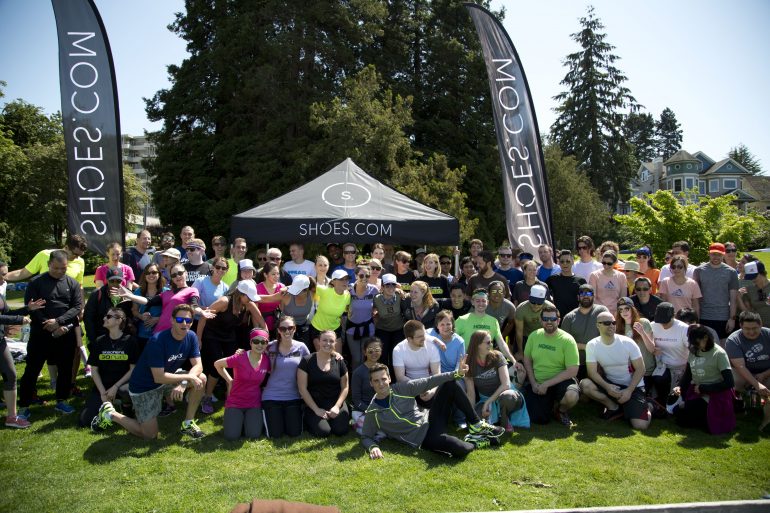Vancouver’s Roger Hardy has moved seamlessly through the head to toe’s of eCommerce. The Internet is filled stories of overnight success, and while he officially joined SHOES.COM as the CEO in July 2014, in Hardy’s case it was his 14-year overnight success story leading Coastal.com and Clearly Contacts that caught my eye.
Going back to 2012, Clearly Contact’s surpassed $1 billion in cumulative sales and began trading on the NASDAQ market. The company’s business model rewarded shareholders and investors in 2014 with a 1050% return on net invested capital when it was sold for $450 million to Essilor. Considering this sister and brother team started their venture with a MasterCard and a $4500 credit limit, it’s a story of building for value, not building for an exit. If there are lessons to learn from great stories, then Hardy’s is one worth noticing.
Most recently, SHOES.COM secured $45 million dollar funding, the largest non-brokered investment in a Canadian eCommerce business to date. In twelve months the company has increased its valuation from $8 million dollars to over $320 million dollars and growing. Today SHOES.COM is Canada’s largest Canadian E- commerce business. In this exclusive interview, I was able to ask Hardy about all of it.
You’ve built a few businesses now. What’s the difference between building a business for value versus building one for an exit?
I don’t know anything about building for an exit. I only know that when you’re in a business, you can’t put your eggs all in one basket – it’s about building value. It’s about figuring out where’s the strategic spot you want to occupy and how’s that going to create long-term value. We’re always focused on really long-term value, and we’re excited to think there’s many billions of dollars of value here with SHOES.COM today.
After the exit to Essilor, why not just hang out on the beach with an umbrella drink in hand, rather than jumping into another leadership role?
Coastal was a great team and it took years to build. With such a great team, it’s fun going into work every day, and doing exciting stuff. I’m really a failed Venture Capitalist. I was only going to make investments, but I really like the people and being part of this organization.
How did Coastal lead to your role with SHOES.COM?
Myself, my sister and some of the other Coastal people had invested in this business. It was already off and running, doing $1 million in sales year one, $5 million years two, and tracking to about $15 million last year. Founder Sean Clark asked if I could come and help him with the business. I thought, I like startups, I like venture capital, and I’m going to be investing in businesses, it was easy to say yes. I literally handed the keys off at 9:00 in the morning at Essilor, and came over here by noon; of course my wife wasn’t totally excited, she would have preferred at least a week off. We were off and running. Looking back at the last almost year, we were at almost a $15 million dollar run rate, and now it’s north of $300 million in gross revenues.
Talk to me about online eyewear versus the footwear experience?
A bunch of business similarities. The eyewear business is fragmented, has a lot of friction points, a high cost to consumer for something that is a relatively low cost to goods. In footwear we saw the same thing: friction points in Canada for selection and convenience. You go into a store and they might have a shoe you like, but not the size you need. And in Canada you can typically have it in any color you want, so long as it’s in black or brown. So our initial hypothesis was how to bring more brands and more selection to Canada.
Looking at the market, and seeing online market penetration of music at 40%, books at 40%, or hotel and travel a la AirB&B moving online, and footwear is still relatively low at about a sub-penetration rate of 10%, and in Canada barely 3%. It’s got a long way to move. For us, an experienced team, combined with good technology in front of a growth market, that’s what we look for in terms of where we want to spend our time.
Is there a secret then to being innovative in retail?
It’s really about serving customers where they are, and sometimes that’s on Robson St. and sometimes that’s at home 9:00 pm on a Sunday night after you’ve put the kids to bed. That’s where we want to be. Where does our customer need us or want us to be, and what do they want us to have available, and when? That’s where retail is going. Of course, there’s the experiential concepts that we think there’s a lot of value to as well. Retail’s changing. People doing innovative things are getting noticed, and getting growth.
Net Promoter Score (NPS) is a world class system to understand what your customer priorities are. It surprises me, and I guess people need to hear the message over and over again, but Canadian businesses are for sure behind in NPS. It gets you hyper focused on where you’re delivering a wow. That’s the key, getting everybody to a Wow! Instead of a management team high fiving over the 9’s & 10’s, it’s the 1’s and 2’s that need to resonate loudest in your meetings, and you’ve got to fix them if you want to succeed.

What makes this exciting as a technology company?
When we looked at the category, there’s not been a ton of innovation this past seven to eight years. For our team we think there’s a lot of technology-driven solutions now for a big data perspective around getting fit right; getting curated personalized collections so that you’re spending time wondering if this is going to fit or not fit. We’re working hard on the $20 million dollar problem of fit, which is the billion dollar opportunity.
I see a day when you’ll slip on a sock with embedded microsensors that takes a snapshot of your foot, and we get a real picture of how unique your foot is.
We think there’s lots of innovation to happen here, and that’s what’s cool. That’s why I’m up early and here late. It’s fun. I work with great people.
What are the prospects of a SHOES.COM IPO?
We’ve had a lot of investors say they’d love to see us public. Whenever the timing makes sense we’ll do it. We just put $46.5 million on the balance sheet, on top of $20 million already in the bank. We want to focus on building the business for the next couple of months. But it’s not hard seeing us being public at some time here, because our team has already done it.
What is BC tech doing well, and what do we have to do better?
There are people who’ve had exits that are re-investing back into the community. I think that’s good. We could still be better at it though. The group is coming into adolescence here.
We really have to be a technology city if we want to talk about it. My own pet peeve is that there’s no Uber here for instance. What innovation are we losing? Not having technology like that being encouraged by our city. As soon as you start limiting innovation, there’s downstream effects. You see InstaCart get $150 million in funding, and now another $200 million, and now other companies are launching these one-hour services, and none of them are going to originate in Vancouver. It’s a huge detriment, and it’s unfortunate there’s a special interest here.
We’re making decisions based on a political interest around preserving a short-term objective. Innovation has to be fostered and encouraged throughout government. It’s not at the level it needs to be, and that will be hurt us long-term. You have the entrepreneurs working hard to do things, but if you can’t get the regulators out of the way it ultimately proves very bad for Vancouver.
We can’t always be buying all of our technology from everywhere else. The only value being created anymore is IP. It’s the IP that matters. Google is IP, Uber is IP, AirB&B is IP and we’re not participating in any of these massive upticks in IP and in value creation and we end up just being consumers of it.
Do you have any advice for those entrepreneurs aspiring the be the next Roger Hardy?
The one thing I’ve seen is the likes of Mark Zuckerberg and Richard Branson are good at thinking big, and at making big calculated investments or bets. The mistake lots of entrepreneurs make is thinking in a linear way. I’ve never seen a market develop in a linear way. It’s the people making the big bets on where the market is going to be… that’s who gets ahead of the crowd.
You’ve got to be taking big bets, you’ve got to be going all in, because there’s ten guys in the US, Europe, and Asia that are.


